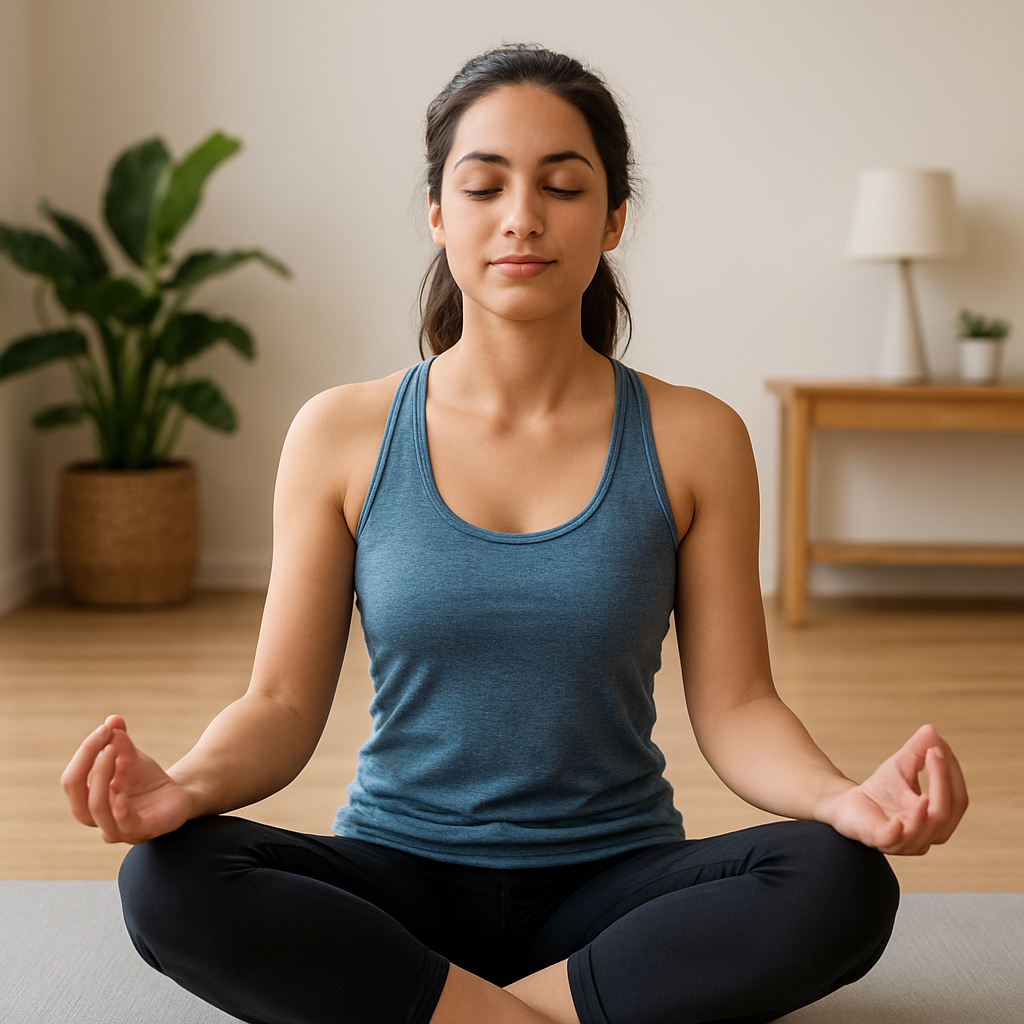Meditation is often associated with monks, silence, or long hours of sitting. But in reality, meditation is a simple practice that anyone can do, and its benefits extend far beyond relaxation. When practiced regularly, meditation can improve focus, reduce stress, and create a deeper sense of balance in daily life.
This article explores why meditation works, how it helps mental health, and how to easily include it in your routine.
What Is Meditation?
Meditation is the practice of training the mind to focus and stay present. It’s not about “emptying the mind” or forcing thoughts to disappear. Instead, it’s about observing thoughts, emotions, and sensations without judgment.
At its core, meditation helps you become more aware and less reactive to the challenges of everyday life.
The Mental Health Benefits of Meditation
Research shows that meditation has powerful effects on mental health:
- Reduces stress – By calming the nervous system and lowering cortisol levels.
- Improves focus and clarity – Trains the mind to concentrate on the present.
- Supports emotional balance – Makes it easier to respond calmly instead of reacting impulsively.
- Enhances resilience – Builds inner strength to face life’s challenges.
- Encourages better sleep – Creates a relaxed state before bedtime.
Even just 10 minutes a day can bring noticeable improvements.
Meditation and Anxiety
One of the greatest benefits of meditation is its ability to reduce anxiety. Anxiety often comes from overthinking or worrying about the future. Meditation teaches the mind to return to the present moment, breaking the cycle of anxious thoughts.
Breathing-focused meditation, for example, helps calm racing thoughts by anchoring attention to something simple and steady—the breath.
Meditation and Stress Management
Stress is a natural part of life, but too much of it can harm mental and physical health. Meditation activates the relaxation response, which lowers heart rate, reduces muscle tension, and encourages feelings of calm.
Over time, meditation trains your brain to recover more quickly from stressful situations.
Meditation for Focus and Productivity
In a world full of distractions, staying focused is difficult. Meditation strengthens attention, making it easier to concentrate on tasks without constantly switching focus.
Even a few minutes of mindfulness before studying or working can improve efficiency and reduce errors.
Different Types of Meditation
There are many styles of meditation, and you can choose one that fits your lifestyle:
- Mindfulness meditation – Observing thoughts and feelings without judgment.
- Breathing meditation – Focusing on the rhythm of your breath.
- Guided meditation – Listening to audio instructions or visualizations.
- Body scan meditation – Noticing sensations in different parts of the body.
- Loving-kindness meditation – Focusing on feelings of compassion for yourself and others.
The best type is the one you can practice consistently.
How to Start Meditating
You don’t need special equipment or a quiet retreat to meditate. You can start small:
- Find a comfortable position—sitting or lying down.
- Close your eyes or soften your gaze.
- Focus on your breath or a simple phrase.
- When your mind wanders, gently return to your focus.
- Start with 5 minutes and gradually increase.
Consistency is more important than duration. A few minutes every day is more effective than a long session once in a while.
Common Challenges in Meditation
Many beginners think they’re failing when their mind wanders. But wandering thoughts are normal. The goal is not to stop thinking but to notice when your attention drifts and gently bring it back. Over time, this becomes easier.
Making Meditation Part of Daily Life
To enjoy the benefits of meditation, make it a habit. Some ways to include it:
- Start your morning with 5 minutes of mindfulness.
- Take a short meditation break at work.
- Use guided meditations before sleep.
- Combine meditation with daily activities, like mindful walking or eating.
Meditation doesn’t have to be separate from life—it can be integrated into everyday routines.
Final Thought: A Simple Tool for Inner Balance
Meditation is not about becoming someone else—it’s about becoming more aware of who you already are. By practicing regularly, you give your mind a chance to rest, reset, and respond more calmly to life’s challenges.
In just a few minutes a day, meditation can transform how you handle stress, connect with others, and find peace in everyday moments.








